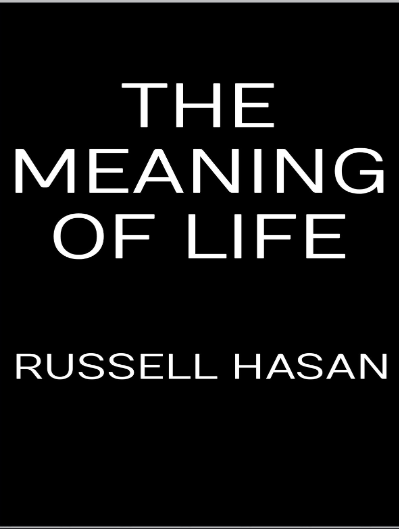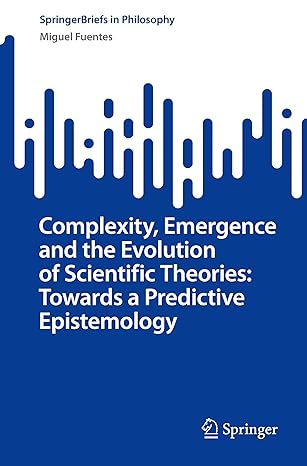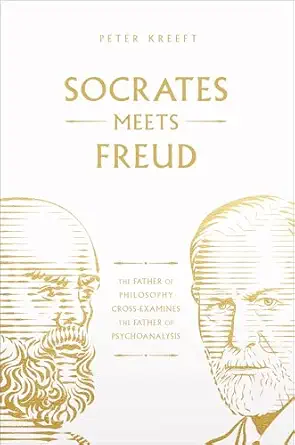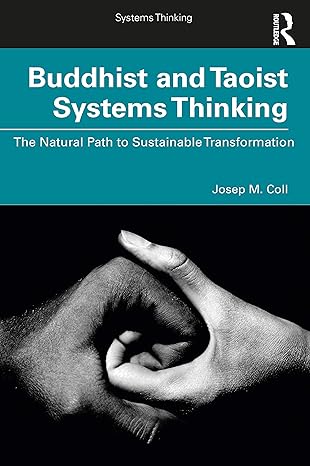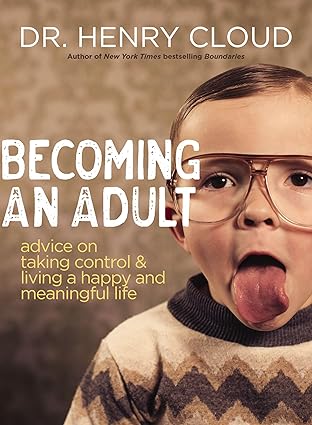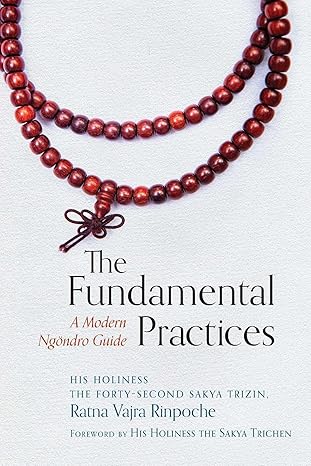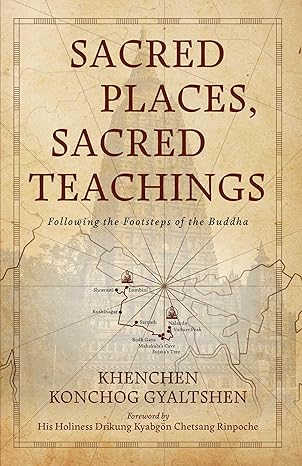a philosophy professor's philosophy paper? To help other philosophy professors. To help them do what? To help them write other philosophy papers. It becomes circular. It has no purpose. It is a means without ends. They aren't helping anyone, other than themselves. I think part of this is that, for a normal person, money holds you accountable, a normal person's need for money forces them to get a job, and be nice and polite to their boss and coworkers, and not show up to work drunk or stoned in the morning, etc. But the philosophy professors, the ones with tenure, at least, live in their Ivory Towers, and their salary is paid, and they don't need to make money, they are insulated from all financial need and want, so reality has no way of holding them accountable. Their money comes from endowments, from donors, who can't read or understand philosophy papers, so they just assume that a professor at Yale or Harvard is legit, and they would be incapable of forming an opinion that it is a scam or a con. For example, if someone advances the position that consciousness does not exist, which is obvious bullshit and any person with self-awareness can prove this isn't true just by being self-aware, such a paper, if it had enough bells and whistles and ornaments of fancy words and arguments written in the style popular in academic philosophy right now, might get published in a peer-reviewed philosophy journal, and then it actually serves the professor's career, instead of hurting them as it would a normal person--if a normal person showed up at work, and said consciousness is an illusion, and he really meant it, his coworkers would call 911 and say he was crazy or on drugs. There isn't a way to measure the truth or falsehood of what philosophers say, so the universities are using the number of peer-reviewed papers that get published, as a measure of the philosophy professors' quality, and donors fund grants on that basis, and the number of papers published only correlates to conformity, orthodoxy, obedience to the most popular methodology, to doing things the same way that everyone else does them, it does not correlate to truth, or to logic, or to reason, or to rationality. Of course, you might say that in many areas of academia, like physics or math, the professors write papers whose only purpose is to help other professors write papers, and the end is the goal of advancing human knowledge. But, in physics, math, etc., that body of knowledge ultimately has a practical usefulness for real human beings, as technology, etc. With philosophy papers, it doesn't help real people in any practical way, nor is it ever intended to. This, too, is why Objectivism is so unpopular among professors, and why they refuse to take us seriously--we do things differently from them, but we are the only ones who do, so, if we did not exist, people would have nothing to compare them to--and the comparison is unfavorable to them. It isn't clear, to me, that there is something that lots of philosophy professors could do, that would actually make enough money to earn a salary--and here, as elsewhere, I define "to make money" as meaning "to create value for self or others to consume." How does one do philosophy? Take consciousness, as a philosophical problem, for example. You could adopt one of several positions with respect to it. It exists. It doesn't exist. It's an illusion. It's the spiritual soul. It's the physical brain. We can have knowledge of it. We cannot have knowledge about it. And then the arguments for and against, and pros and cons, of each position. It's all very obvious, really, and every smart person already understands this debate. You make your arguments, the person listens to the debate, they choose what they believe, and that's it, and then they move on. There's nothing more for a philosopher to do. Yes, if the person chooses the wrong position, then they live for the rest of their lives with the consequences of believing something that is false. But that's on them. You can prove, using logic and deductive proof, that a position is true, but the audience still has to choose to see your proof and think it through and understand it, or else they are not persuaded, even by logic. So there isn't that much work for a philosopher to do. One might say, but in a philosophy class, a professor asks the students "Does consciousness exist?", and maybe one of the students had never thought about it before, but now she thinks about it, and it makes her see the world with a fresh set of eyes, so this opens her mind up to the wonder of thinking about philosophy or thinking about life in a philosophical way, and that makes her a better thinker. Yes, a philosophy teacher can do that, and that is worth money to the student, if it makes her a better thinker. But a high school philosophy teacher could do that. Any person can do that. That isn't the goal of a PhD-holding philosophy professor at Yale philosophy or Harvard philosophy. That wasn't the goal of what their graduate philosophy studies were teaching them how to do. Now, in the debates, in philosophy and politics, the Objectivism position and the Libertarian position are often left out, so I have a lot of work to do, because not every side is represented in the debate yet, so a person can't yet make a fully informed decision, because they haven't heard our side yet. But for the philosophy professors? There is not that much work for them to do. So they waste their time with busy-work, trying to look sophisticated so that people will think that they are smart, with arguments bordering on mere mysticism, arguing in paper after paper about how many angels can dance on the head of a pin. I don't have much to gain from them, and they don't really have much to gain from me. They are not my intended audience. But they are their own only intended audience. You might ask me for specific examples. Take modal logic, and counterfactuals. Those are the hot trending topics philosophy professors love nowadays. Modal logic is based on the logic of all possible worlds. But there’s a problem. In reality, there aren’t any worlds other than the reality that you and I live in. It’s bullshit. It’s a crock of dog shit, dumped on the street, for everyone to smell. Papers on that topic literally make me want to vomit. Counterfactuals are not nearly as repulsive, but they are one of the hot topics in academic philosophy, and, as far as I am concerned, they are completely unimportant. A counterfactual is an If P then Q statement where P is false. Every element of them that has true importance in logic could be summed up in a single paragraph, maybe even a single run-on sentence. There is nothing special about them. And yet there are dozens of papers on this topic every year. It’s insane. Again, they view it as having to do with other possible worlds, that If P Then Q is true even if P is false because there is some other world where P actually is true in reality. And they don't mean hypothetically; they mean that there really is an actual reality where P is true, an alternate universe that exists. I know, it's weird, right? The problem is that the logicians never came up with a principle of inductive logic, from which you could relate P and Q to reality on the basis of true or false, so they return, again, to modal logic, and, again, they make me want to vomit. In my books I have explained inductive reasoning and the points of connection between logic and physical scientific empirical reality, but, alas, they are ignorant of my work, and I blame them for not having thought of it themselves. I can only assume these topics are really popular because it is easy for the philosophy professors to write about them, and it is impossible to ever know whether what they say about them is really true. Maybe, at some point, originally, some of them, in their examination of counterfactuals, were looking for the analysis I presented and proved in my essay “If P Then Q,” about the logic of science and how to use logic for observations, but they were not smart enough to arrive at my end result, so they got lost along the way. They don’t know how someone could know that If P Then Q is true if P itself is false. It’s sad. It’s like they’ve never done an actual philosophical analysis of something in physical reality, from which anyone would see how you can know such things. “If the cow had been born without a mouth, it would have died.” The farmer knows that, because he knows cows, and he understands how they work. It has nothing to do with other possible worlds, it has only to do with this world. But the philosophers don’t know how to connect logic to perception, such that you can see what is or is not truth. So they think it all comes from intuition, and inner knowledge of other possible worlds, which is sheer mysticism. There are no other possible worlds. There is only one reality. There is nary an original thought in all their heads. They just eat, and then regurgitate, and then re-eat, the vomit that other philosophy professors vomited, after those other professors had eaten the vomit--I mean, the work-- of David Lewis, which itself was not a contribution to human progress in any meaningful way. It is a syndrome Ayn Rand described: the death of originality, the rise of mediocrity, the end of new ideas, the conformity to conformity itself. What is Philosophy? Philosophy studies these topics. Any answer to any question on these topics, to the extent plausible and based on argument and analysis, is philosophy. Who decides what is plausible? That too is for philosophy to study. To answer a question pertaining to these topics, or to take a position with respect to any aspect of one of these topics, to say what one of these things is, why it is such, how it works, that it is one or two opposed to each other or many, or to assert that it does not exist, and to then explain why it does not exist and how we humans are to go without it--is philosophy. Any method or tool by means of which these topics are studied constitutes the tools and methods of philosophy. Call this, if you will, the Hasanian Taxonomy of Philosophy. The topics: 1. Metaphysics and Ontology I. Being II. Reality III. Objectivity IV. Reason and Reasoning V. Induction and Deduction VI. Things and their Relations VII. Substance and Form 2. Epistemology I. Knowledge II. Language and Truth III. Logic and Proof IV. Universals V. Essences VI. Definitions VII. Abstractions and Ideas 3. Ethics and Morality I. Free Will II. Right and Wrong, Good and Evil III. Moral Absolutes and Moral Relativity IV. Consequences, and their Moral Significance V. Means, Usage of Things for Purposes, and Its Moral Significance VI. Human Action and Motives and Ends VII. Ideals 4. Philosophy of Mind I. Minds II. Persons, and Personal Identity III. Emotions, specifically What Are They IV. Mental States, and Thought V. Self-Knowledge VI. Self-Reference VII. Consciousness 5. Philosophy of Science I. Science, specifically What It is, and What is Its Nature II. Cause and Effect III. Necessity and Coincidence IV. Math and Numbers, specifically What They Are, and What Is Their Nature V. Sensations and Phenomena and Empirical Data VI. Perception VII. Physical Substance, the Physical World, Space and Time 6. Religion and Theology I. God II. Souls III. Virtues IV. Sins V. Intuition and Revelation VI. Faith VII. Meaning and Purpose 7. Social and Political Philosophy I. Politics, Its role and purpose, and Its causes and effects II. Economics, Its role and purpose, and Its causes and effects III. Freedom, Its role and purpose, Its causes and effects, and Its creation and destruction IV. Government, Its role and purpose, Its causes and effects, and Its creation and destruction, as Well as Its Means and Ends V. Individual Rights (if any exist), Their role and purpose, their causes and effects, and their creation and destruction, and Collective Responsibilities (if any exist), Their role and purpose, their causes and effects, and their creation and destruction VI. Utopias and Ideal Political-Economic Conditions, How They are Defined, If They Can Exist, How or Why Then Can Exist, or, If They Cannot Exist, Why They Cannot Exist, and What Conditions of Society are Acceptable Without Them, and What Role the Ideals of Utopias Play in Non- Utopian Conditions VII. Practical Philosophy (for example, Philosophy of Law): The application of any answer to a question pertaining to a theoretical topic of philosophy where such application is to a practical or methodological area of human life and human action, such as, for example, the practical implementation of an abstract philosophical position. You might object: But what about aesthetics? I left out an entire branch of philosophy! But aesthetics, as commentary about works of art, or a theory of art, would come in under other categories, for example, art that was about, or art criticism that used works of art to comment upon, for example, being, or moral and ethical ideals, or spiritual meaning and purpose (for example, either to say or imply what it is, or to say or imply that it does not exist), would be aesthetics, as philosophy, relating to one of those above topics. Theories of works of art, as they relate to beauty, or to love, would come in under human action, or under emotions, or under ideals, or under being. There is no one right answer to how or why aesthetics is philosophy (maybe? About that, too, we can debate), but I would argue that my system covers everything there is in philosophy, pretty much. One might also ask: Then every religion is a philosophy? Yes. Every theology is a philosophy. Theology is a type of philosophy. It is one type among many types. The unifying theme that unites all these topics, is that they are the deepest, most abstract, most theoretical topics available to us humans. Or maybe something else. Or perhaps there is nothing that all of these topics share in common. That too is for philosophy to decide. Then the next question: who is a philosopher? A philosopher is any person who studies these topics and forms a belief therefrom or who formulates a position on a topic combined with an argument or analysis to justify that position
چکیده فارسی
مقاله فلسفه یک استاد فلسفه؟ برای کمک به سایر اساتید فلسفه. برای کمک به آنها چه کاری انجام دهند؟ برای کمک به آنها در نوشتن مقالات فلسفی دیگر. دایره ای می شود. هیچ هدفی ندارد. وسیله ای بدون هدف است. آنها به غیر از خودشان به کسی کمک نمی کنند. من فکر می کنم بخشی از این موضوع این است که برای یک فرد عادی، پول شما را مسئول می کند، نیاز یک فرد عادی به پول آنها را مجبور می کند تا شغلی پیدا کنند و با رئیس و همکاران خود خوب و مؤدب باشند و در حالت مستی یا مستی سر کار حاضر نشوند. صبح سنگسار می شود و غیره. اما اساتید فلسفه، آنهایی که تصدی دارند، حداقل در برج عاج خود زندگی می کنند و حقوقشان پرداخت می شود و نیازی به پول درآوردن ندارند، از همه نیازهای مالی مصون هستند و می خواهند، بنابراین واقعیت راهی برای مسئول نگه داشتن آنها ندارد. پول آنها از موقوفات می آید، از اهداکنندگانی که نمی توانند مقالات فلسفی را بخوانند یا درک کنند، بنابراین آنها فقط فرض می کنند که یک استاد در دانشگاه ییل یا هاروارد قانونی است، و آنها نمی توانند نظر بدهند که این یک کلاهبرداری یا کلاهبرداری است. . به عنوان مثال، اگر کسی این موضع را مطرح کند که آگاهی وجود ندارد، که این یک مزخرف آشکار است و هر فردی با خودآگاهی می تواند ثابت کند که این فقط با خودآگاهی درست نیست، چنین کاغذی اگر به اندازه کافی زنگ و سوت داشته باشد. و زینتهایی از کلمات و استدلالهای فانتزی که به سبک رایج در فلسفه آکادمیک در حال حاضر نوشته شدهاند، ممکن است در یک مجله فلسفه با داوری همتا منتشر شوند، و سپس به جای آسیب رساندن به آنها مانند یک فرد معمولی، عملاً در خدمت حرفهی استاد باشند. اگر یک فرد عادی سر کار حاضر می شد و می گفت هوشیاری یک توهم است و واقعاً منظورش این بود، همکارانش با 911 تماس می گرفتند و می گفتند که او دیوانه است یا مواد مخدر مصرف می کند. راهی برای سنجش درستی یا نادرستی گفتههای فیلسوفان وجود ندارد، بنابراین دانشگاهها از تعداد مقالاتی که با داوری همتا منتشر میشوند، به عنوان معیاری برای سنجش کیفیت اساتید فلسفه استفاده میکنند و اهداکنندگان بر این اساس کمکهای مالی را تامین میکنند. و تعداد مقالات منتشر شده فقط با انطباق، ارتدوکس، اطاعت از متداول ترین روش شناسی، انجام کارها به همان روشی که دیگران آنها را انجام می دهند، مرتبط است، با حقیقت، یا منطق، یا استدلال، یا به عقلانیت البته ممکن است بگویید در بسیاری از حوزه های دانشگاهی مانند فیزیک یا ریاضی، اساتید مقالاتی می نویسند که تنها هدف آن کمک به سایر اساتید در نوشتن مقاله است و در نهایت هدف پیشرفت دانش بشری است. اما در فیزیک، ریاضی و غیره، این مجموعه دانش در نهایت برای انسان های واقعی، به عنوان فناوری و غیره، فایده عملی دارد. به. به همین دلیل است که عینیت گرایی در بین اساتید بسیار محبوب نیست و چرا آنها از جدی گرفتن ما امتناع می ورزند - ما کارها را متفاوت از آنها انجام می دهیم، اما تنها ما هستیم، بنابراین، اگر ما وجود نداشتیم، مردم وجود داشتند. چیزی برای مقایسه آنها وجود ندارد - و مقایسه برای آنها نامطلوب است. برای من روشن نیست که بسیاری از اساتید فلسفه بتوانند کاری انجام دهند، که در واقع پول کافی برای کسب حقوق داشته باشد - و در اینجا، مانند جاهای دیگر، "پول درآوردن" را به معنای "به دست آوردن" تعریف می کنم. برای خود یا دیگران ارزشی ایجاد کنید که مصرف کنند." چگونه می توان به فلسفه پرداخت؟ به عنوان مثال، آگاهی را به عنوان یک مسئله فلسفی در نظر بگیرید. شما می توانید یکی از چندین موضع را در رابطه با آن اتخاذ کنید. وجود دارد. وجود ندارد. این یک توهم است. این روح معنوی است. این مغز فیزیکی است. ما می توانیم از آن آگاهی داشته باشیم. ما نمی توانیم در مورد آن آگاهی داشته باشیم. و سپس ادله موافق و مخالف و موافقان و مخالفان هر موضع. واقعاً همه اینها کاملاً واضح است و هر فرد باهوشی از قبل این بحث را درک کرده است. شما استدلال های خود را مطرح می کنید، آن شخص به بحث گوش می دهد، آنچه را که باور دارد انتخاب می کند، و تمام، و سپس ادامه می دهد. دیگر کاری برای یک فیلسوف وجود ندارد. بله، اگر فرد موقعیت اشتباهی را انتخاب کند، تا پایان عمر با عواقب باور به چیزی که نادرست است زندگی می کند. اما این روی آنهاست. شما می توانید با استفاده از منطق و برهان قیاسی ثابت کنید که یک موضع درست است، اما مخاطب همچنان باید انتخاب کند که برهان شما را ببیند و به آن فکر کند و آن را بفهمد، در غیر این صورت حتی با منطق متقاعد نمی شوند. بنابراین کار زیادی برای یک فیلسوف وجود ندارد. شاید بتوان گفت، اما در یک کلاس فلسفه، استادی از دانشجویان می پرسد: «آیا آگاهی وجود دارد؟» و شاید یکی از دانشجویان قبلاً به آن فکر نکرده بود، اما اکنون به آن فکر می کند و باعث می شود دنیا را با آن ببیند. مجموعه ای از چشمان تازه، بنابراین ذهن او را به روی شگفتی اندیشیدن در مورد فلسفه یا تفکر در مورد زندگی به روشی فلسفی باز می کند و این او را متفکر بهتری می کند. بله، یک معلم فلسفه می تواند این کار را انجام دهد و این برای دانش آموز ارزش پول دارد، اگر او را متفکر بهتری کند. اما یک معلم فلسفه دبیرستان می تواند این کار را انجام دهد. هر شخصی می تواند این کار را انجام دهد. این هدف یک استاد فلسفه دارای مدرک دکترا در فلسفه ییل یا فلسفه هاروارد نیست. این هدف چیزی نبود که تحصیلات تکمیلی فلسفه به آنها یاد می داد چگونه انجام دهند. اکنون در مناظره ها، در فلسفه و سیاست، موضع عینیت گرایی و موضع آزادی خواهانه اغلب کنار گذاشته می شود، بنابراین من باید کار زیادی انجام دهم، زیرا هنوز همه طرف ها در مناظره حضور ندارند، بنابراین یک فرد نمی تواند هنوز کاملا آگاهانه تصمیم بگیرید، زیرا آنها هنوز حرف ما را نشنیده اند. اما برای اساتید فلسفه؟ کار زیادی برای انجام دادن آنها وجود ندارد. بنابراین آنها وقت خود را با مشغله کاری تلف می کنند، سعی می کنند پیچیده به نظر برسند تا مردم فکر کنند آنها باهوش هستند، با استدلال هایی که در حد عرفان محض است و کاغذ پشت کاغذ در مورد اینکه چند فرشته می توانند روی سر یک سنجاق برقصند بحث می کنند. من چیز زیادی از آنها ندارم و آنها واقعاً چیز زیادی از من ندارند. آنها مخاطب مورد نظر من نیستند. اما آنها تنها مخاطب مورد نظر خودشان هستند. ممکن است از من مثال های خاصی بخواهید. منطق مودال و خلاف واقع را در نظر بگیرید. اینها موضوعات پرطرفدار امروزی است که اساتید فلسفه دوست دارند. منطق مدال مبتنی بر منطق همه جهان های ممکن است. اما یک مشکل وجود دارد در واقعیت، هیچ دنیای دیگری جز واقعیتی که من و تو در آن زندگی می کنیم وجود ندارد. این مزخرف است. این یک خشت سگ است که در خیابان ریخته شده است تا همه بو کنند. مقالات در مورد آن موضوع به معنای واقعی کلمه باعث می شود که من بخواهم استفراغ کنم. ضدافکت ها تقریباً آنقدرها هم منزجر کننده نیستند، اما یکی از موضوعات داغ فلسفه آکادمیک هستند و تا آنجا که به من مربوط می شود، کاملاً بی اهمیت هستند. یک خلاف واقع یک عبارت If P سپس Q است که در آن P نادرست است. هر عنصری از آنها که در منطق اهمیت واقعی دارد را می توان در یک پاراگراف خلاصه کرد، شاید حتی در یک جمله اجرائی. هیچ چیز خاصی در مورد آنها وجود ندارد. و با این حال هر سال ده ها مقاله در مورد این موضوع وجود دارد. این دیوانه کننده است مجدداً، آنها آن را بهعنوان ارتباطی با دیگر جهانهای ممکن میبینند، که اگر P آنگاه Q درست است، حتی اگر P نادرست باشد، زیرا دنیای دیگری وجود دارد که در آن P واقعاً در واقعیت صادق است. و منظور آنها فرضی نیست. منظور آنها این است که واقعاً یک واقعیت واقعی وجود دارد که در آن P صادق است، یک جهان جایگزین که وجود دارد. می دانم، عجیب است، درست است؟ مشکل این است که منطق دانان هرگز به یک اصل منطق استقرایی دست پیدا نکردند که از آن بتوان P و Q را بر اساس درست یا نادرست به واقعیت ربط داد، بنابراین آنها دوباره به منطق مدال برمی گردند، و باز هم می گویند. من می خواهم استفراغ کنم در کتابهایم استدلال استقرایی و نقاط ارتباط منطق و واقعیت تجربی علمی فیزیکی را توضیح دادهام، اما افسوس که آنها از کار من بیخبر هستند و من آنها را سرزنش میکنم که خودشان به آن فکر نکردهاند. من فقط می توانم فرض کنم که این موضوعات واقعاً محبوب هستند زیرا نوشتن در مورد آنها برای اساتید فلسفه آسان است و هرگز نمی توان فهمید که آیا آنچه در مورد آنها می گویند واقعاً درست است یا خیر. شاید در نقطهای، در ابتدا، برخی از آنها در بررسی خلاف واقعها، به دنبال تحلیلی بودند که در مقالهام «If P then Q» ارائه و اثبات کردم، درباره منطق علم و چگونگی استفاده از منطق برای مشاهدات، اما آنها به اندازه کافی باهوش نبودند که به نتیجه نهایی من برسند، بنابراین در طول راه گم شدند. آنها نمی دانند که چگونه کسی می تواند بفهمد که اگر P پس Q درست است اگر P خود نادرست باشد. غم انگیز است مثل این است که آنها هرگز یک تحلیل فلسفی واقعی از چیزی در واقعیت فیزیکی انجام نداده اند، که از آن هرکسی ببیند چگونه می توانید چنین چیزهایی را بدانید. "اگر گاو بدون دهان به دنیا می آمد، می مرد." کشاورز این را می داند، زیرا گاوها را می شناسد و می فهمد که چگونه کار می کنند. ربطی به دنیاهای ممکن دیگر ندارد، فقط به این دنیا ربطی دارد. اما فیلسوفان نمی دانند که چگونه منطق را به ادراک متصل کنند، به طوری که شما بتوانید ببینید حقیقت چیست یا نیست. بنابراین آنها فکر می کنند که همه اینها از شهود، و شناخت درونی دیگر عوالم ممکن است که عرفان محض است. هیچ جهان ممکن دیگری وجود ندارد. تنها یک واقعیت وجود دارد. یک فکر اصلی در سر همه آنها وجود دارد. آنها فقط می خورند، و بعد دوباره می خورند، و بعد دوباره می خورند، استفراغی را که سایر اساتید فلسفه استفراغ کردند، بعد از اینکه آن اساتید دیگر استفراغ - منظورم کار- دیوید لوئیس را خوردند، که خود سهمی در آن نبود. پیشرفت انسان به هر طریق معنادار این سندرمی است که آین رند توصیف می کند: مرگ اصالت، ظهور متوسط، پایان ایده های جدید، تطابق با خود مطابقت. فلسفه چیست؟ فلسفه این موضوعات را مطالعه می کند. هر پاسخی به هر سؤالی در این موضوعات، در حد معقول و مبتنی بر استدلال و تحلیل، فلسفه است. چه کسی تصمیم می گیرد که چه چیزی قابل قبول است؟ این نیز برای مطالعه فلسفه است. برای پاسخ به سؤالی در این زمینه یا موضع گیری نسبت به هر جنبه ای از یکی از این موضوعات، گفتن اینکه یکی از این موارد چیست، چرا این گونه است، چگونه کار می کند، یکی دو مورد مخالف است. به یکدیگر یا بسیاری، یا اینکه ادعا کنیم وجود ندارد، و سپس توضیح دهیم که چرا وجود ندارد و چگونه ما انسان ها باید بدون آن برویم - فلسفه است. هر روش یا ابزاری که به وسیله آن این مباحث بررسی شود، ابزار و روش های فلسفه را تشکیل می دهد. اگر بخواهید اسمش را بگذارید تاکسونومی حسنی فلسفه. موضوعات: 1. متافیزیک و هستی شناسی I. بودن II. واقعیت III. عینیت IV. Reason and Reasoning V. Induction and Deduction VI. اشیا و روابط آنها VII. جوهر و صورت 2. معرفت شناسی I. دانش II. زبان و حقیقت III. منطق و اثبات IV. Universals V. Essences VI. تعاریف VII. انتزاعات و ایده ها 3. اخلاق و اخلاق 1. اراده آزاد II. درست و غلط، خوب و بد III. مطلقات اخلاقی و نسبیت اخلاقی IV. پیامدها و اهمیت اخلاقی آنها V. ابزارها، استفاده از اشیا برای مقاصد و اهمیت اخلاقی آن VI. کنش انسانی و انگیزه ها و غایات VII. ایده آل ها 4. فلسفه ذهن I. ذهن ها II. اشخاص و هویت شخصی III. احساسات، به طور خاص چه هستند IV. حالات ذهنی و فکر V. خودشناسی VI. خود مرجع VII. آگاهی 5. فلسفه علم 1. علم، به ویژه آنچه هست و ماهیت آن چیست II. علت و معلول III. ضرورت و تصادف IV. ریاضیات و اعداد، به ویژه آنچه هستند، و ماهیت آنها چیست. V. احساسات و پدیده ها و داده های تجربی VI. ادراک VII. جوهر فیزیکی، جهان فیزیکی، مکان و زمان 6. دین و الهیات I. خدا II. روح III. فضایل IV. Sins V. شهود و مکاشفه VI. ایمان هفتم. معنا و هدف 7. فلسفه اجتماعی و سیاسی 1. سیاست، نقش و هدف و علل و آثار آن II. اقتصاد، نقش و هدف و علل و آثار آن III. آزادی، نقش و هدف، علل و آثار آن، و ایجاد و نابودی آن IV. حکومت، نقش و هدف، علل و آثار آن، و ایجاد و نابودی آن، و نیز ابزار و اهداف آن. V. حقوق فردی (در صورت وجود)، نقش و هدف، علل و آثار آن، و ایجاد و تخریب آن. و مسئولیت های جمعی (در صورت وجود)، نقش و هدف آنها، علل و آثار آنها، و ایجاد و تخریب آنها VI. آرمان شهرها و شرایط ایده آل سیاسی-اقتصادی، چگونه تعریف می شوند، اگر می توانند وجود داشته باشند، چگونه یا چرا می توانند وجود داشته باشند، یا اگر نمی توانند وجود داشته باشند، چرا نمی توانند وجود داشته باشند، و چه شرایط جامعه بدون آنها قابل پذیرش است، و چه نقشی دارند. بازی آرمانهای آرمانشهر در شرایط غیر اتوپیایی VII. فلسفه عملی (مثلاً فلسفه حقوق): کاربرد هر پاسخی به سؤالی مربوط به یک موضوع نظری از فلسفه در جایی که این کاربرد در حوزه عملی یا روش شناختی زندگی و کنش انسان باشد، مانند مثلاً اجرای عملی یک موضع فلسفی انتزاعی ممکن است مخالفت کنید: اما زیبایی شناسی چطور؟ من کل یک شاخه از فلسفه را کنار گذاشتم! اما زیباییشناسی، بهعنوان تفسیری درباره آثار هنری، یا نظریهای در مورد هنر، در دستههای دیگری قرار میگیرد، برای مثال، هنری که درباره آن بود، یا نقد هنری که از آثار هنری برای اظهارنظر، مثلاً، بودن یا اخلاقی استفاده میکرد. و آرمان های اخلاقی، یا معنا و هدف معنوی (مثلاً گفتن یا دلالت بر آنچه هست، یا گفتن یا دلالت بر عدم وجود آن)، زیبایی شناسی، به عنوان فلسفه، مربوط به یکی از موضوعات فوق خواهد بود. نظریات آثار هنری، از آنجایی که به زیبایی یا عشق مربوط میشوند، تحت کنش انسانی، یا تحت عواطف، یا تحت آرمانها، یا تحت هستی قرار میگیرند. هیچ پاسخ درستی برای اینکه زیباییشناسی چگونه یا چرا فلسفه است وجود ندارد (شاید؟ در مورد آن نیز میتوانیم بحث کنیم)، اما من استدلال میکنم که سیستم من تقریباً همه چیزهایی را که در فلسفه وجود دارد پوشش میدهد. همچنین می توان پرسید: پس هر دینی یک فلسفه است؟ آره. هر الهیات یک فلسفه است. الهیات نوعی فلسفه است. این یکی از انواع مختلف است. موضوع وحدتبخشی که همه این موضوعات را متحد میکند، این است که آنها عمیقترین، انتزاعیترین و نظریترین موضوعات در دسترس ما انسانها هستند. یا شاید چیز دیگری. یا شاید هیچ چیز مشترک همه این موضوعات وجود نداشته باشد. این نیز بر عهده فلسفه است که باید تصمیم بگیرد. سپس سوال بعدی: فیلسوف کیست؟ فیلسوف هر شخصی است که به مطالعه این موضوعات می پردازد و از آن باور می کند یا موضعی را درباره موضوعی همراه با استدلال یا تحلیلی برای توجیه آن موضع تنظیم می کند
ادامه ...
بستن ...
